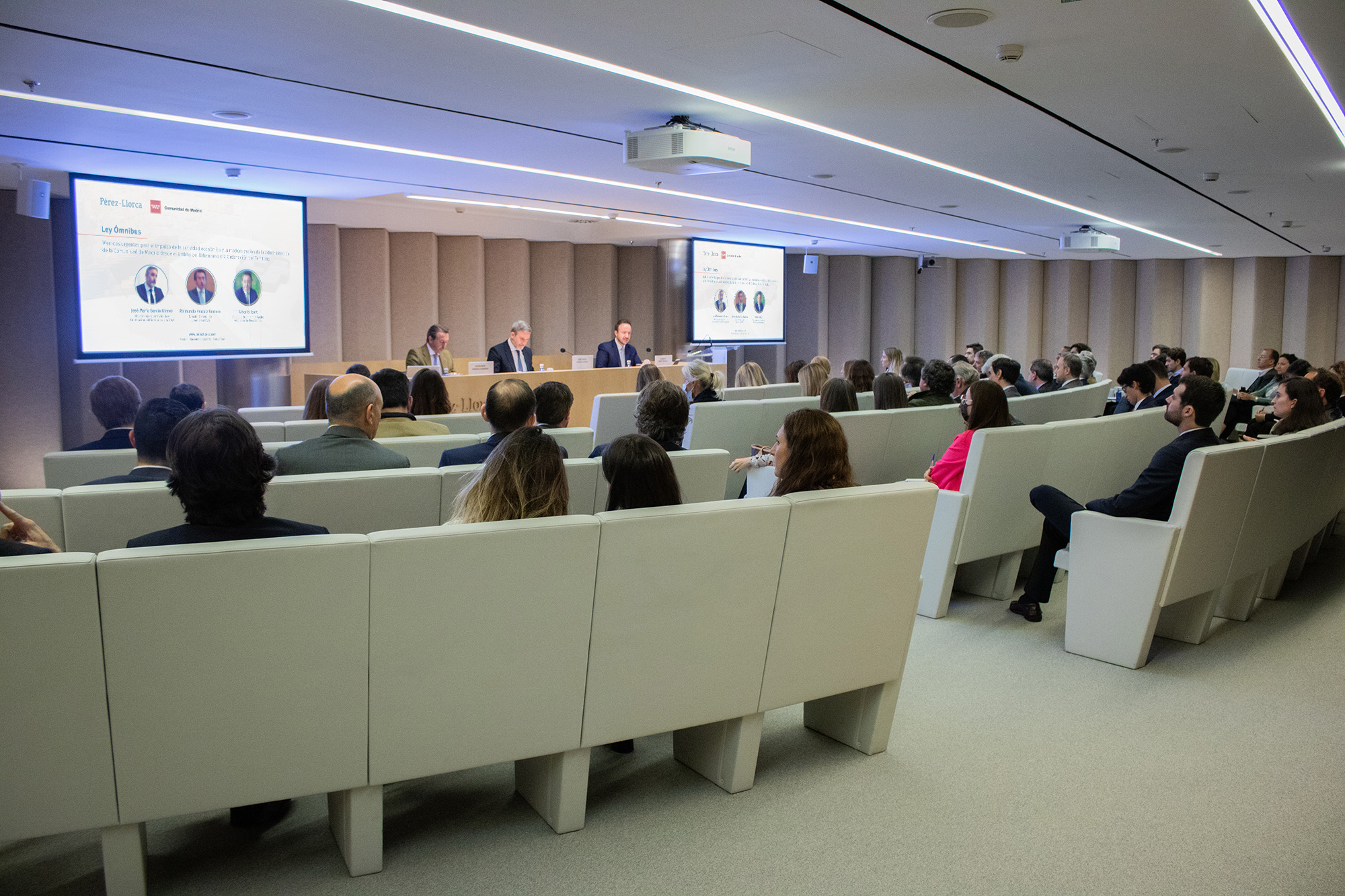Pérez-Llorca held an event in collaboration with the Community of Madrid presenting the main developments in urban and land planning set out in the Draft Law on Urgent Measures for the Promotion of Economic Activity and the Modernisation of the Administration of the Community of Madrid.
This project, approved on 16 February by the Madrid Regional Government Council, and in the process of parliamentary processing while it is available to citizens on public portals, is expected to be approved by the Madrid Assembly in autumn of this year.
The “Omnibus Law” has a direct impact on large economic players in the Community of Madrid such as investment funds, developers, servicers, construction companies, architectural firms and renewable energy companies, among others. This law seeks to update the urban planning regime by introducing significant amendments to, among other regulations, Law 9/2001, of 17 July, on the Land of the Community of Madrid, and Law 9/1995, of 28 March, on Land Policy, Land and Urban Planning Measures, both of which have been in force for more than twenty years.
To explain the new features of this draft law, the conference was attended by the Vice-Minister of Housing and Territorial Planning of the Community of Madrid, José María García Gómez, the Director General of Urban Planning of the Community of Madrid, Raimundo Herraiz Romero, and the partner in charge of Pérez-Llorca’s Land Planning and Environment department, Alberto Ibort Franch.
José María García Gómez, Vice-Minister of Housing and Territorial Planning of the Community of Madrid, began the session by explaining the motivation and objectives of the ambitious urban modification proposed by the draft law. The Vice-Minister pointed out that, among other objectives, it aims to encourage public-private collaboration for the generation of a sustainable housing stock; to promote the “debureaucratisation” of administrative and land planning procedures; to promote authorisation regimes based on trust in citizens; to try to make changes in land planning uses more flexible, as well as to update the regional urban planning legislation to the social, economic, legal and technical needs of citizens and real estate operators.
Raimundo Herraiz Romero, Director General of Urban Planning of the Community of Madrid, then took the floor and gave a detailed legal presentation of the main proposals contained in the draft law which seek to promote sustainable investment, with an updated legal framework that allows for the generation of value in the Community of Madrid. Herraiz Romero reflected on the motivation for the need for these adjustments and explained new features of the draft law mainly related to actions on urban land; the regulation of urban transformation actions in line with state regulations; the greater autonomy of the municipalities for the adaptation of their urban development rules to the legislation; the simplification of urban development transfers; the promotion of public-private partnerships and public housing for rent on developed land; the regulation of collaborating urban development entities at the regional level; and actions on rural land or regional projects as drivers of regional urban planning, among others.
Finally, Alberto Ibort Franch, partner in charge of Pérez-Llorca’s Land Planning and Environment practice area, summarised the main features of the draft law and emphasised that the proposed changes respond to the issues that have been recurrently raised in land planning and real estate transactions, developments and projects over the last decade in the Community of Madrid. The Pérez-Llorca partner then gave way to the final speeches of the attendees who, in summary, emphasised that the approval of the Project will boost the opportunities for development and urban transformation of the Community of Madrid.
